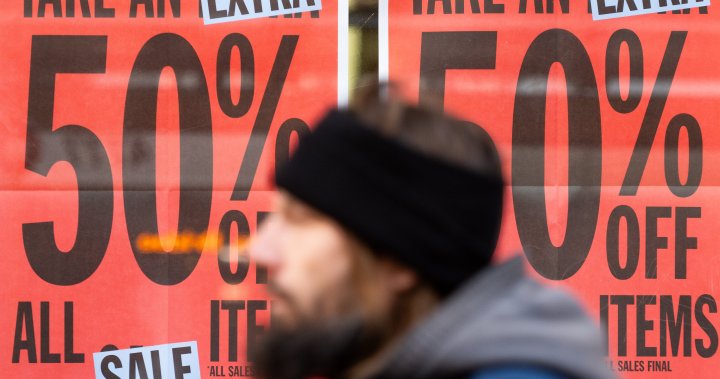Even as overall inflation has eased in recent months, it is getting more expensive to own a pet in Canada.
New data published Tuesday by Rover.com showed that the cost of having a cat or dog has surged compared with last year.
The increase can be attributed to the price of pet food and supplies, which rose by 2.1 per cent year-over-year in February, according to the latest inflation data released by Statistics Canada on Tuesday.
“There are definitely inflationary pressures that are facing pet parents in Canada these days, driven by the rising cost of pet food (and) veterinary care,” said Rebecca Greenstein, chief veterinarian of Kleinberg Veterinary Hospital in Ontario.
Supply chain difficulties and an increased demand for premium pet foods have made feeding pets more expensive in Canada, Greenstein, who is also the veterinary medical advisor for Rover.com, told Global News in an interview.
On top of that, Canadian pet owners are also grappling with soaring veterinary bills due to staffing shortages and an increase in medicine prices, she said.
“Owning a pet is a significant financial undertaking, and a lot of people will underestimate that, particularly the cost of emergency care.”
In 2024, the average dog parent is expected to spend somewhere between $956 to $4,020 per year on their dog, according to Rover.com’s analysis.
The monthly costs on basic essentials like food, flea and tick prevention, poop bags and annual check-ups add up to between $80 and $335 — a 55 per cent jump from last year.
Financial news and insights
delivered to your email every Saturday.
Financial news and insights
delivered to your email every Saturday.
And that does not even include the initial costs of bringing home a new dog, such as neutering, buying a collar, leash, bed and grooming items, which could amount to roughly $2,465 to $4,770 in the first year. Those upfront costs are 44 per cent higher than 2023.
Additional dog expenses that owners should factor into their budget, including emergency vet bills, dental cleaning or dog walking, can range from $1,525 to $6,680.
For older dogs, the end-of-life care, such as euthanasia, senior pet medication or cremation, can cost anywhere between $1,145 and $4,350.
Owning a cat is slightly cheaper in Canada. Rover.com estimates that the average cost of raising a furry feline can range from $930 to $2,400 per year in annual essentials.
Monthly, this comes down to between $80 and $200 for the average cat parent — an increased average spending of $70 relative to 2023.
The first-year expenses for the average cat parent are somewhere between $1,875 and $3,345.
Additional optional expenses for cat owners, such as emergency vet bills, pet insurance and grooming, can average between $1,075 and $3,995.
Cost of end-of-life care for senior cats amounts to somewhere between $1,035 and $4,110.
For items such as home grooming, buying pet medicines online, and shopping for pet gear at discount stores, there are several ways that pet owners can save money while still caring for their furry friends, according to Rover.com.
Money-saving apps, coupons, daily deal sites and rewards programs can also be helpful in cutting back your pet expenses.
Greenstein said it is a good idea to periodically review your pet’s diet with a vet to make sure the food they’re eating is nutritionally balanced and has value for the money.
If your dog or cat is sick, she also advised on different treatment options as there may be some “wiggle room financially.”
Pet insurance can also mitigate costs for treating unexpected accidents or illnesses, Greenstein said.
“I think it’s pretty amazing that despite the rising cost of pet care, people are still willing to take that plunge on a daily basis,” she said.
“Pet parents who have pets already know that it’s really hard to put a price tag on the love that you get from your pets.”
© 2024 Global News, a division of Corus Entertainment Inc.




